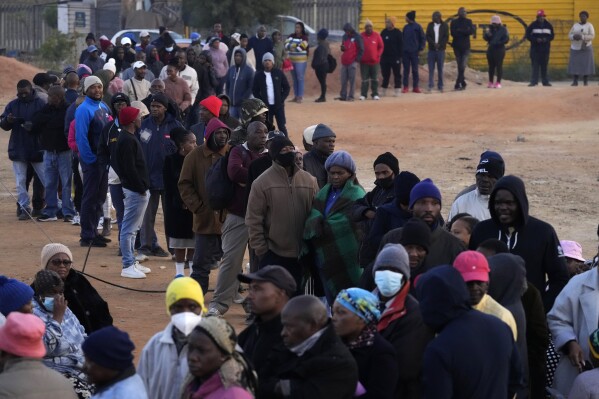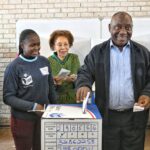Tens of thousands of South Africans have formed long, snaking lines at voting stations across the country on Wednesday as they cast ballots in pivotal national elections posing the biggest challenge yet to the ruling African National Congress’ 30-year grip on power.
From urban townships to rural villages, South African citizens are turning out in force to elect a new 400-seat National Assembly that will determine if the ANC’s historic liberation movement can maintain its dominance or be forced to share power through a coalition government.
The hard-fought campaign has seen the ANC, once led by Nelson Mandela, facing blistering criticism over economic stagnation, high unemployment, and lingering corruption scandals. Opinion polls suggest the party could struggle to meet the 50% threshold needed to govern outright.
If realized, it would be a tectonic shift for Africa’s most industrialized nation. The ANC has been the only party to lead since South Africa’s transition to democracy in 1994 after decades of white minority rule under the racist system of apartheid.
The election is being watched globally as a test of the strength of South Africa’s democracy. Over 27 million registered voters are eligible to directly elect the lower house of Parliament, which will then choose the president to lead the country for the next five years.
There were delays in some polling stations opening, with voting due to start at 7 a.m. and end at 9 p.m. South Africa has held peaceful and credible elections since a violent buildup to the pivotal 1994 election. The independent electoral commission said two days of special early voting went smoothly on Monday and Tuesday, although two people were arrested for interfering with voting operations, it said.
Long lines are snaking outside some polling stations in Johannesburg and other major cities well before they opened at 7 a.m. Independent observer missions are on hand to monitor the integrity of the process.
President Cyril Ramaphosa has campaigned vigorously to rally ANC support by highlighting his anti-corruption reforms and pledging to ramp up economic growth. But he faces an uphill battle after South Africa’s economy shrank more than 6% since 2019, with crippling power blackouts further damaging business confidence.
The main opposition parties, including the centrist Democratic Alliance and EFF, have hammered the ANC over such woes and positioned themselves as forces for change.
While no single opposition party appears poised to topple the ANC outright, the prospect of a plurality win would force the former liberation movement to seriously negotiate a governing coalition for the first time in its history.
Such protracted political uncertainty could further rattle South Africa’s markets and scare off needed foreign investment. A smooth, credible transfer of power will also be scrutinized as proving the maturity of the nation’s democracy three decades after apartheid’s end.
The Electoral Commission is urging patience as results begin trickling in on Thursday, cautioning that full and final tallies will likely take until the weekend given the high expected turnout. Official results are due by Saturday.
The long lines are illustrating South Africans’ determination to cast their ballots and shape their country’s future in the historic election.









